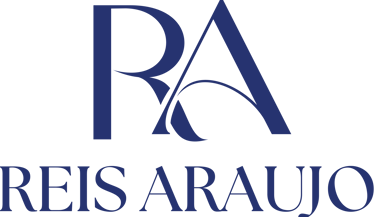Registering Numbers, Letters, and Dates as Trademarks in Brazil: Legal Possibilities
Explore the challenges and opportunities of registering numbers, letters, and dates as trademarks in Brazil. Understand the legal requirements for distinctiveness under Article 124 and learn practical tips for international IP specialists advising clients on brand protection in the Brazilian market.
Laila dos Reis Araujo
5/28/20252 min read


When advising clients on trademark registration in Brazil, one common question arises: can numbers, letters, or dates be registered as trademarks? The Brazilian Industrial Property Law (Law No. 9.279/1996) provides clear guidance, particularly in Article 124, item II, which states that letters, numerals, and dates, when used in isolation, cannot be registered as trademarks unless they possess sufficient distinctive character.
This legal provision aims to strike a balance between protecting brand identity and preserving the public domain from monopolization of generic or descriptive signs widely used in commerce.
Why Are Numbers, Letters, and Dates Restricted from Registration?
Numbers, letters, and dates are common elements that naturally appear in everyday business and communication. Registering these signs in isolation could unfairly limit competitors and consumers, since such elements are essential for product identification, categorization, or descriptive purposes. Brazilian trademark law prevents exclusive rights over these generic signs to maintain fair competition and market transparency.
When Can Numbers, Letters, or Dates Be Registered as Trademarks in Brazil?
Although the law restricts registration of these elements alone, it allows for exceptions if the mark is sufficiently distinctive. Distinctiveness may be:
Inherent — when the sign is arbitrary, fanciful, or stylized in a way that makes it unique and not directly descriptive.
Acquired — through extensive use, advertising, and consumer recognition, the mark gains secondary meaning that identifies the origin of goods or services. When the distinctiveness is acquired is more common to have the trademark registered through Court decisions.
For example, a numeric brand like “501” for denim products or a date presented with distinctive graphical elements may qualify for trademark protection if they distinguish themselves in the marketplace.
Challenges in Registering Numeric, Letter, and Date Marks in Brazil
Trademark examiners at the Brazilian Trademark and Patent Office (INPI) often scrutinize applications involving numbers, letters, or dates to assess:
Whether the sign is merely descriptive or generic.
If it lacks inherent distinctiveness.
The presence of acquired distinctiveness or secondary meaning.
The potential for consumer confusion.
Because of this rigorous review, many applications involving isolated numbers or letters are initially refused unless supported by strong evidence of distinctiveness.
Strategic Recommendations for International IP Practitioners
For IP specialists advising foreign clients interested in registering trademarks involving numbers, letters, or dates in Brazil, the following best practices are essential:
Conduct thorough trademark clearance searches to identify conflicting marks and assess registrability.
Encourage clients to develop distinctive branding elements that combine numbers, letters, or dates with logos, colors, or stylized fonts.
Document extensive use and marketing efforts to demonstrate acquired distinctiveness when inherent distinctiveness is not evident.
Prepare to respond effectively to INPI refusals with legal arguments and evidence supporting distinctiveness.
Consider the cultural and commercial significance of numbers or dates in Brazil, which may influence consumer perception.
Conclusion:
Understanding the limitations and possibilities of registering numbers, letters, and dates as trademarks in Brazil is crucial for successful brand protection strategies. While Brazilian law restricts the registration of these elements in isolation, distinctive and well-developed marks that incorporate them can achieve strong protection. Aligning legal expertise with marketing strategy ensures clients’ trademarks are not only registrable but also enforceable in the Brazilian market.


